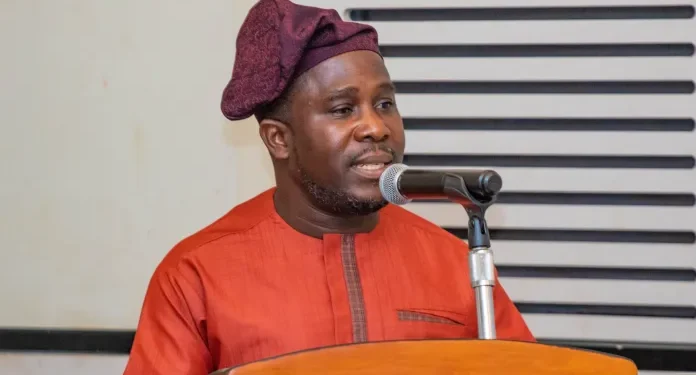Policy analyst, Peter Tekper, has expressed concerns over the feasibility of funding Dr. Mahamudu Bawumia’s manifesto promises, given Ghana’s current IMF program and the associated fiscal constraints.
Tekper pointed out that Dr. Bawumia’s promises lack clear funding mechanisms, as they are not tied to specific revenue streams, raising concerns about their feasibility and implementation.
He noted that political parties often fall short on their promises due to a mismatch between their ambitious commitments and the limited resources available to implement them, leading to unfulfilled expectations.
“Unfortunately nothing has been said about revenue and that is where our problem is. So they come to power and then they are forced to implement these policies at the detriment of the Ghanaian irrespective of what happens”.
“That is we have very good policies but the implementation always has challenges because they are in a hurry to implement a lot of policies”.
Peter Tekper
Tekper further emphasized that while offering tax relief to businesses is crucial, political parties’ promises of blanket tax amnesty are unrealistic and unsustainable, given the significant revenue implications for the government
He cast doubt on the policy’s ability to boost tax compliance, arguing that the government needs to identify and tackle the root causes of tax evasion, rather than simply offering amnesty, to encourage more people to enter the tax bracket.
Tekper warned that tax amnesty can have a counterproductive effect, discouraging individuals from filing their taxes and ultimately harming the state’s finances by reducing revenue collection.
He welcomed the political parties’ pledge to abolish the e-levy but cautioned that a suitable replacement revenue source must be identified to avoid reverting to excessive borrowing, which could undermine the country’s fiscal stability.
NPP Urged To Prioritize Accountability
Furthermore, Mustapha Gbande, Deputy General Secretary of the opposition NPP, argued that rather than prioritizing manifesto promises, the party should focus on accountability and transparency in governance, given its current position in power.

Gbande stressed that Ghanaians elected the NPP to deliver solutions to the country’s challenges, but since the party has fallen short of expectations, it is imperative that they prioritize accountability to regain the public’s trust.
He criticized the NPP manifesto for failing to address the pressing issues facing Ghanaians, saying it appears disconnected from the everyday concerns and challenges of the citizens.
“If you have a running mate who measures the standard of living of the people in dollars when in Ghana we don’t transact in dollars, then it is misleading. You would have to measure between what is being said and what has been done”.
“It [the manifesto] is a recycled plan of lies, deception and dishonesty. Today, they are in government, I will be more happy if, after yesterday’s manifesto, duty charges have dropped at the ports today”.
Mustapha Gbande
Gbande challenged the logic of delaying solutions until 2025, when Dr. Bawumia’s manifesto would be implemented, given the current hardships faced by Ghanaians, emphasizing the need for immediate action rather than future promises.
He pointed to the NPP’s history of unfulfilled promises, warning that their latest manifesto is likely to suffer the same fate, given the party’s consistent failure to deliver on its commitments.
The NDC Deputy General Secretary observed that the NPP’s budgets since 2016 have consistently featured the same promises and initiatives now included in their recently launched manifesto, implying a lack of progress and new ideas.
He criticized the NPP for misallocating resources to frivolous projects, citing the failed 1 District, 1 Dam (1D1D) initiative and the controversial National Cathedral as prime examples of wasteful expenditure.
Gbande accused the Vice President of hypocrisy for promising to scrap the e-levy in his manifesto, despite having previously championed and vigorously defended its implementation, highlighting a stark contradiction between his past actions and current campaign pledges.
He demanded that the government put its words into action by promptly removing the e-levy, stressing that anything less would betray a lack of sincerity and credibility in its manifesto commitments.
READ ALSO: Violence Against Aid Workers Decried























